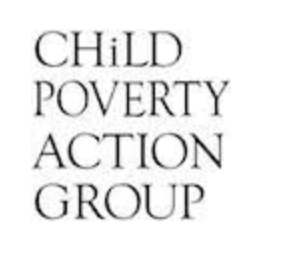Child Poverty Action Group (CPAG) says that if the Deputy Prime Minister has indicated progress is slow for welfare reform, an appropriate and timely response would be for the Government to urgently adopt the simple and effective changes outlined in a briefing paper released by CPAG this morning.
Specifically the Prime Minister and Cabinet should act to reduce the harms associated with cruel investigations of sole parents, most often mothers, by individualising benefits and updating the rules about establishing a relationship as being in the nature of a marriage from a six-week period to three years, in accordance with the Property (Relationships) Act 1976.
When Deputy Prime Minister Hon. Winston Peters was questioned at today’s 4pm Post Cabinet Press Conference about whether, to date, Government’s progress on welfare reform was sufficient to help those most affected by neglectful policy, he answered “not yet”.
While he said there were more changes in the pipeline he was not able to give details.
“We appreciate that the Government is working hard to put together a plan to address the 42 over-arching recommendations and over 100 detailed recommendations in the Welfare Expert Advisory Group’s Whakamana Tāngata report,” says CPAG executive officer Georgie Craw. “What we are asking is that they make some simple, effective changes that will relieve stress among low-income families on benefits. We want everyone to live free from the constraints of poverty.
“Today they could say ‘Yes’ to extending the Winter Energy Payment for all low-income families until a firm plan is in place around increasing benefits, they could say ‘Yes’ to changing the relationship rules that put undue strain on relationships, reduce income for children, and make people fearful of falling in love, and they could say ‘Yes’ to helping more people with their transition to work by changing the abatement thresholds for earned income.”
Renee Manella, a sole mother who receives a benefit said earlier today that “if the Government puts in place all of CPAG’s priority recommendations from the WEAG’s report we can make kids and their families healthier, happier, and more active in our communities.”
“Let’s make this a ‘Yes’ moment for children and whānau in Aotearoa,” adds Craw.






The national party put the benefit up by 20$ a week when they were in power 2 years ago this now needs to increased to 40$ per week as national cut the social welfare benefits during the mother of all budgets in 1990 by 40$ per week so really they have given back some of what they took now I would like to see an increase as all this money will go straight back into our economy.
The benefit should be more to those that deserve it so the testing needs to be ramped up to weed out those that should not.
It needs to be easier to go into seasonal work and then back on the benefit without stand down.The rules regarding relationships needs to be clear and not arbitrary. The government needs to solve the problems in NZ instead of being global warriors under their leader.We have plenty of them.
Sorry, but that’s not quite right. National raised benefits by $25 for beneficiaries with children IF they were not getting the accomodation supplement or some other add on such as temporary assistance grant. Essentially if you owned your own home freehold. The vast majority received between $9-$12 per week. We got $9. The Greens put out a press release to this affect but it was ignored by the mainstream media
From the Briefing Paper (link above):
“the $80 threshold has not been altered since 1986. Lifewise has pointed out that $80 in 1986 was worth approximately $250 in today’s dollars (or 15 hours of work). They stated that lifting the abatement threshold not only helps the community but is a ‘fiscally effective opportunity’ that is a ‘win-win situation for everyone’.”
Again, “the $80 threshold has not been altered since 1986.”
Think about it!
This is a gross imbalance. Back in 1986 we did not have the extremes in income disparity that exist today. State housing was available (pre-Nats big sell-off), rents were affordable without our landlords living somewhere in China, and basic foods could be obtained without the obscene 15% GDT tag on every item down the line.
In 2019, more than 30 years later, a cruelty situation has been created. We are depriving many of our youngest citizens. This represents a failure, a degeneration of who we are becoming as a society.
Comments are closed.